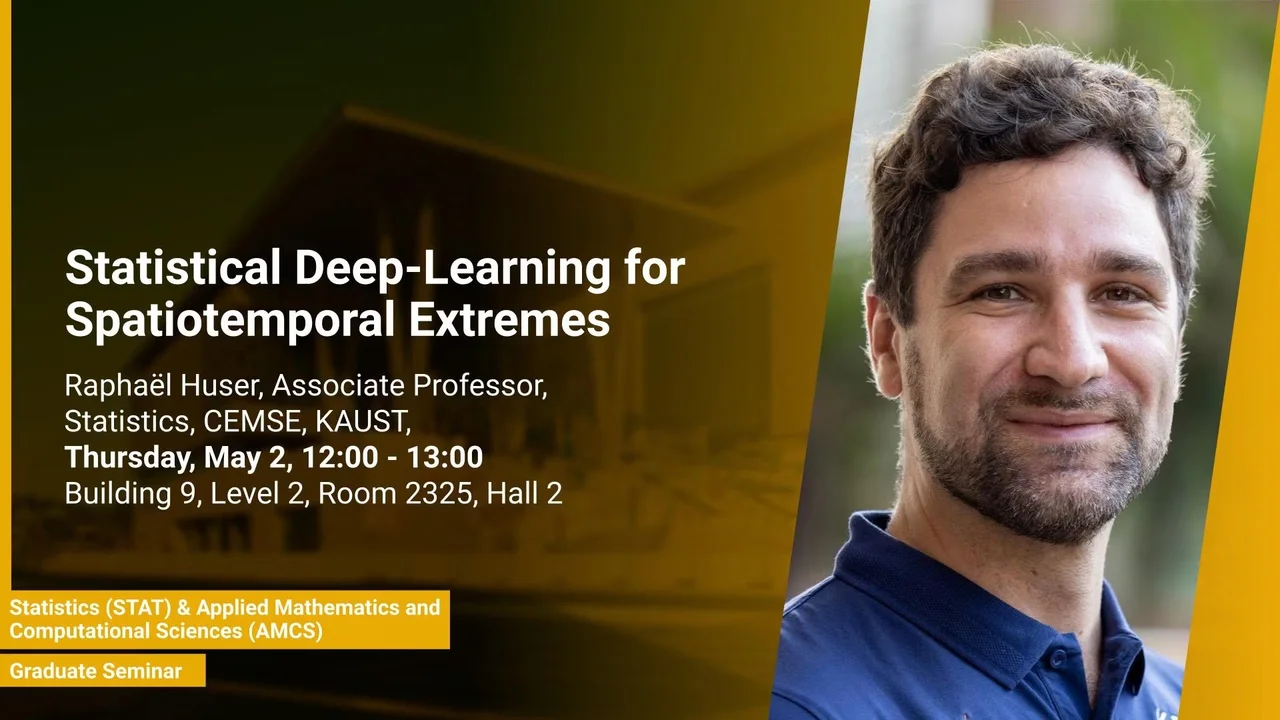
Statistical Deep-Learning for Spatiotemporal Extremes
B9 L2 H2 H2
Rare, low-probability events often lead to the biggest impacts. Therefore, the development of statistical approaches for modeling, predicting and quantifying environmental risks associated with natural hazards is of utmost importance. In this seminar, I will show how statistical deep-learning methods can help solve challenges that arise when modeling complex and massive spatiotemporal extremes data.
Overview
Abstract
Rare, low-probability events often lead to the biggest impacts. Therefore, the development of statistical approaches for modeling, predicting and quantifying environmental risks associated with natural hazards is of utmost importance. In this seminar, I will show how statistical deep-learning methods can help solve challenges that arise when modeling complex and massive spatiotemporal extremes data. Specifically, I will show how neural Bayes estimation, which is a novel likelihood-free neural-network-based method for fast and optimal inference with intractable models, can be exploited to provide significant time savings with popular spatial extremes models. The proposed methods will be illustrated by application to extreme Red Sea surface temperature data and air pollution data from Saudi Arabia.
Brief Biography
Raphaël Huser is an Associate Professor of Statistics in the CEMSE Division at KAUST, where he leads the Extreme Statistics (XSTAT) research group. He started his career at KAUST initially as a Postdoctoral Research Fellow in 2014, and was later appointed Assistant Professor of Statistics, before transitioning to his current role as an Associate Professor in 2022. Before joining KAUST, Huser received his Ph.D. degree in statistics from the Swiss Federal University of Lausanne (EPFL) in 2013. He also holds a B.Sc. in mathematics and an M.Sc. in applied mathematics from EPFL. Huser has received several awards for his research work, the most recent one being the 2022 Abdel El-Shaarawi Early Investigator Award from The International Environmetrics Society (TIES), an association of the International Statistical Institute (ISI). Huser's research focuses on the development of new flexible and theoretically-motivated statistical models, as well as computationally efficient statistical machine learning inference methods, for extreme events in complex systems arising in various applications from climate and earth sciences, (crypto-)finance, and neuroscience. His work aims at making an impact in statistics of extremes and beyond, by improving models, prediction, and quantification of risk based on high-dimensional, multivariate and/or spatio-temporal, non-stationary datasets.